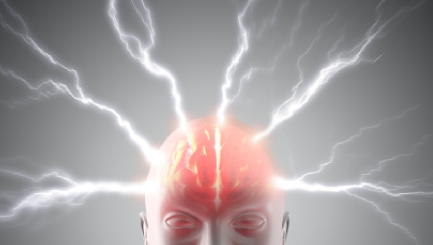Could Five Different Mental Disorders Share a Genetic Link?
 US Researchers have found that five common psychiatric conditions traditionally considered to be clinically distinct may in fact share genetic risk factors. According to the team from the Cross-Disorder Group of the Psychiatric Genomics Consortium, changes in calcium signalling could be a fundamental biological mechanism in mental wellness, affecting your development of autism, attention deficit hyperactivity disorder, clinical depression, bipolar disorder and schizophrenia
US Researchers have found that five common psychiatric conditions traditionally considered to be clinically distinct may in fact share genetic risk factors. According to the team from the Cross-Disorder Group of the Psychiatric Genomics Consortium, changes in calcium signalling could be a fundamental biological mechanism in mental wellness, affecting your development of autism, attention deficit hyperactivity disorder, clinical depression, bipolar disorder and schizophrenia
Currently, the five conditions are supposed to affect your wellbeing either starting in childhood (childhood onset – autism, ADHD) or in adulthood (adult onset – depression, bipolar disorder, schizophrenia). As there are currently no medical tests for any of these conditions, all of them are diagnosed according to whether a distinct set of symptoms occur, and the impact they have. Up until now, the consensus was that a combination of genetic, biological and environmental factors contributes to the development of these conditions.
For the study, which was published in the peer-reviewed journal The Lancet, the five conditions were selected on the basis of the availability of a large genetic data set. The researchers analysed genetic data from more than 57,000 people overall, all of European ancestry. The DNA of 30,000 people with autism, ADHD, depression, bipolar disorder or schizophrenia were compared with the genetic sequences of more than 27,000 people who did not have these conditions.
The study’s authors reported, a variety of research ‘including that from clinical, epidemiological and molecular genetic studies, suggests that some genetic risk factors are shared between neuropsychiatric disorders.’ However, on their own, these variations cannot predict or explain the development of autism, ADHD, depression, bipolar disorder or schizophrenia. As with all studies like this one, which was a genome-wide association study of several complex conditions, the researchers point out that the actual effect that the individual variations had was small, and so it cannot predict or diagnose these mental health conditions.
Yet the researchers added that their study increases the wealth of evidence on the subject, and provides ‘insights into the shared causation of psychiatric disorders’. Specifically, these insights are that changes in calcium signalling could be a fundamental biological mechanism ‘contributing to a broad vulnerability to psychopathology’. The hope is that this research could help doctors to understand how and why individual patients develop some mental health conditions, which may eventually lead to a new generation of drug treatments.


Comments are closed.